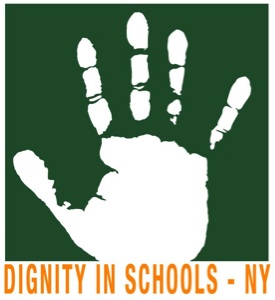States Should Follow Maryland and Take Action to Curb Suspensions in Schools

On January 24, Maryland state school board members announced that they will propose an overhaul of school discipline codes to curb the increasing number of school suspensions. These new regulations would seek to move away from the zero-tolerance policies that have resulted in eight percent of students state-wide being suspended last year, nearly half of whom were suspended for nonviolent offenses.
According to School Board President James H. DeGraffenreidt Jr., students of color and special education students are far more likely to be suspended than their peers, and board members believe there is a link between the high suspension rate for those groups and low achievement.
The School Board announced that the series of regulations would include a required plan to decrease suspensions for nonviolent offenses as well as suspensions of students of color and special education students in every district. In addition, the board has redefined long-term suspensions to a period of 4-10 days rather than a suspension longer than 10 days. Changes have already been adopted in Baltimore public schools since 2007 where the number of suspensions decreased by 34% by the 2010-2011 school year.
In New York City, there were over 73,400 suspensions in the 2010-2011 school year – a growing trend over the past decade mirroring the increase in zero tolerance infractions in the NYC Discipline Code. Students with disabilities and students of color continue to be suspended at disproportionately high rates and for longer lengths of time. While Black students make up only 33% of the student population, they receive 52% of suspensions and are more likely to receive suspensions for minor offenses. New York City and other school districts’ policies continue to push students out of school; research by the American Psychological Association has shown that suspensions do not improve behavior, but rather increase the likelihood that students will fall behind in school, dropout or become incarcerated.
While there is a growing awareness by the Department of Education that school climate and discipline policies are an important factor in student retention and academic achievement, movement to reform discipline policies is slow. In 2009, the NYC City Council passed the Student Safety Act, which mandates that school suspension and arrest data be released regularly. This greater level of transparency regarding discipline data is a step in the right direction. In fact, on January 25, youth advocates in Chicago publicly called on its city to pass a similar law to make school discipline and arrest data more available.
However, New York City has yet to make a commitment similar to that in Maryland to reduce suspensions and implement positive alternatives. The Dignity in Schools Campaign-New York, a coalition of youth, parents, educators and advocates, urges the New York City Department of Education to help lead the way by funding and implementing discipline policies that reduce suspensions and incorporate positive approaches such as peer mediation and restorative practices in schools.
__
The Dignity in Schools Campaign (DSC) challenges the systemic problem of pushout in our nation’s schools and advocates for the human right of every young person to a quality education and to be treated with dignity. The DSC unites parents, youth, advocates and educators to support alternatives to a culture of zero-tolerance, punishment and removal in our schools.
